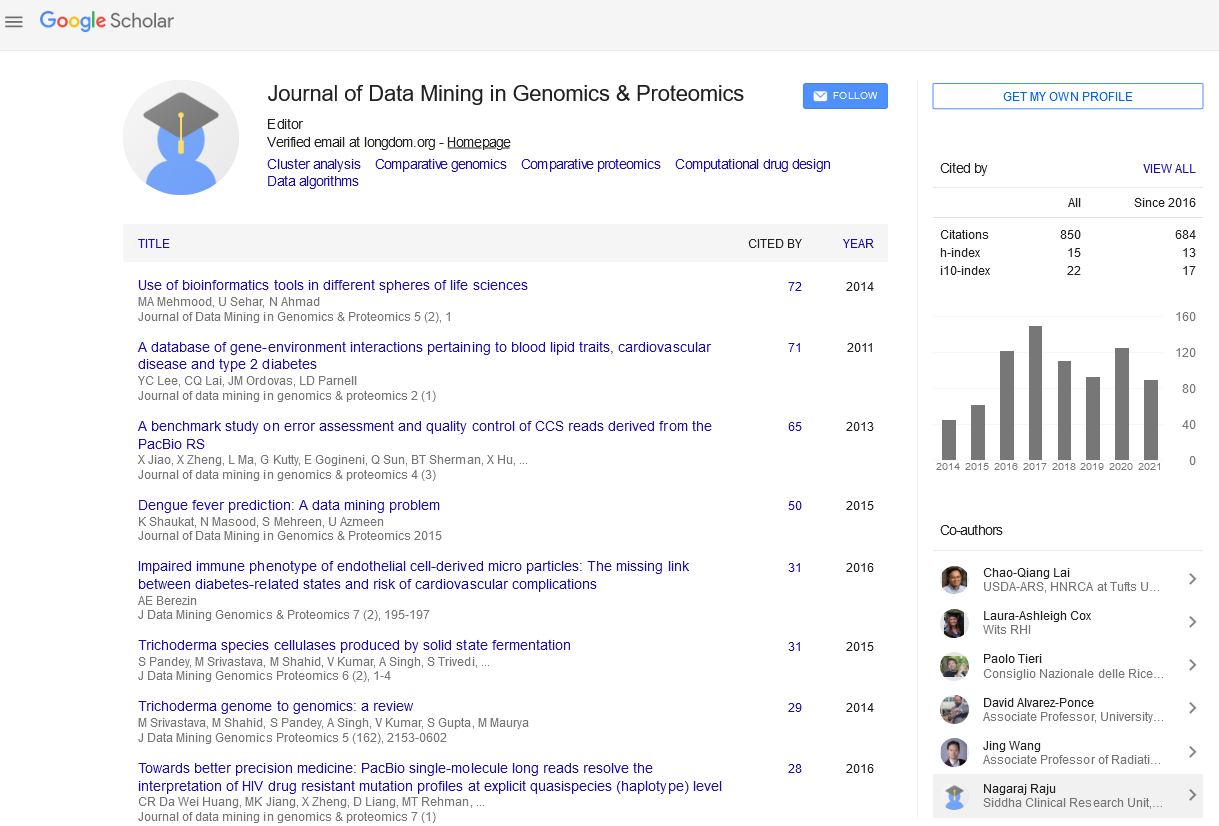PMC/PubMed Indexed Articles
Indexed In
- Academic Journals Database
- Open J Gate
- Genamics JournalSeek
- JournalTOCs
- ResearchBible
- Ulrich's Periodicals Directory
- Electronic Journals Library
- RefSeek
- Hamdard University
- EBSCO A-Z
- OCLC- WorldCat
- Scholarsteer
- SWB online catalog
- Virtual Library of Biology (vifabio)
- Publons
- MIAR
- Geneva Foundation for Medical Education and Research
- Euro Pub
- Google Scholar
Useful Links
Share This Page
Journal Flyer

Open Access Journals
- Agri and Aquaculture
- Biochemistry
- Bioinformatics & Systems Biology
- Business & Management
- Chemistry
- Clinical Sciences
- Engineering
- Food & Nutrition
- General Science
- Genetics & Molecular Biology
- Immunology & Microbiology
- Medical Sciences
- Neuroscience & Psychology
- Nursing & Health Care
- Pharmaceutical Sciences
Abstract
The Family Knowledge about the Disease and Complications Risk among Diabetic Patients-in Poland
Taking care of diabetic patients involves a family which is perceived as an environment, whose support is a factor that best forecasts implementation of required recommendations for diabetes care. The ability of family to support patients’ effort can improve diabetes care results. The aim of this work is to indicate how family knowledge about the disease diversifies a medical condition and complications risk among diabetic patients. Research has been carried out within the scope of NCSR grant no. 6P05D02320, under the leadership of the work’s author, among 1366 families/ caregivers of diabetic patients randomly chosen from 61 primary healthcare centres in Poland. For the purpose of this work, the research has been carried out based on: anonymous questionnaires among patients’ families/caregivers, analysis of medical records. Results: The majority of families supporting the patient have no knowledge about the disease (56.2%). Among families with higher (moderate) knowledge level a statistical analysis demonstrated that the patient takes more care about oral hygiene (p<0.00001), participates in self-control (p<0.00001) and self-monitoring (p<0.05), is more efficient and independent (p<0.00001), have no somatic (p<0.005) or psycho-emotional health complains (p<0.005) or additional medical conditions (p<0.005) and his/her weight (p<0.0005) blood pressure (p<0.005) and triglycerides level (p<0.05) are in the normal range. Conclusions: 1. Family knowledge about the disease is a significant factor that diversifies a medical condition of diabetic patients. 2. Higher knowledge level of the family about the disease improves patients’ medical condition and reduces the risk of diabetes complications.


